Podcasts about Non-Profit
Episodes about Non-Profit
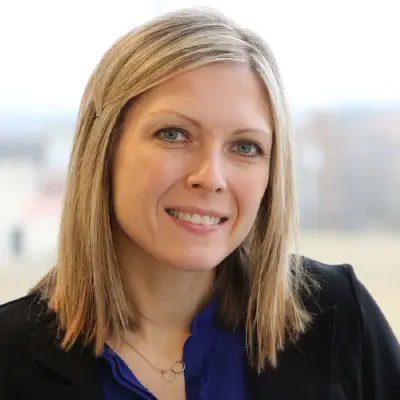
Confused about how much protein you should be eating each day? Registered Dietitian Michelle Schultz from Sarah Bush Lincoln, breaks it down for us. In a few words, keep it simple.Support the showSarah Bush Lincoln is a 150-bed, not-for-profit, regional health system located in East Central Illinois. Follow us on: Faceboook InstagramLinkedIn
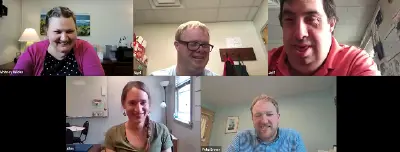
Happy Wednesday! Today on the podcast it’s just us – your favorite STRIVECast fam! In this episode, Jeff shares his Mount Rushmore of summer movies, Noel reviews Fun Town and previews the upcoming STRIVE 25, and we play a round of STRIVEia all about July birthdays! Sont forget – the STRIVE for 5 5K and Pancake breakfast is coming up this Sunday, July 13th! If you enjoy listening to the STRIVECast – please like, comment, share, or leave us a reaction! Who knows, you could even be the next listener of the week! Happy Listening!!
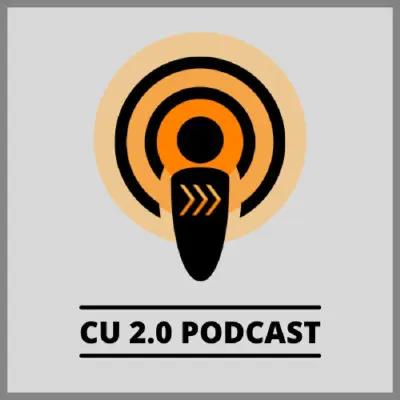
Jul 09, 2025
CU 2.0 Podcast Episode 360 Youth Banking'sTime Is Here: Incent and Pioneer FCU Tell Why
The CU2.0 Podcast ❭
Send us a textSuddenly youth banking is back in the conversation and that’s because this time there is real optimism that it’s a product that’s emerging at the right time. Case in point of the optimism is a recent Finovate article headlined “Why Youth Banking Is Set to Surge In 2025.” Better news is that this market isn’t solely for the big banks and fintechs. Now on the scene is Incent with its youth digital banking tools and it’s launched a CUSO that right now has one member owner, Idaho based Pioneer Federal Credit Union, a $700 million institution.Many credit unions already are signed up to be customers of Incent.On the show to tell about why now is the time for youth banking and the product is Incent are Marcel King, president of Incent, and Tracey Miller, EVP at Pioneer.Listen up.Like what you are hearing? Find out how you can help sponsor this podcast here. Very affordable sponsorship packages are available. Email rjmcgarvey@gmail.com And like this podcast on whatever service you use to stream it. That matters. Find out more about CU2.0 and the digital transformation of credit unions here. It's a journey every credit union needs to take. Pronto

Jul 08, 2025
Let Meowt! How Rikers Island Is Saving Its Cats, Featuring Gloria Murli of Rikers Island Cat Rescue and Mike Phillips of Urban Cat League
The Community Cats Podcast ❭
“My biggest challenge is making sure the welfare of these cats is taken care of. I’ll never desert these cats. Never.” - Gloria Murli This episode is sponsored-in-part by Maddie’s Fund and the Rescue Cleaners and Disinfectants. What happens when a prison island becomes a refuge for hundreds of community cats? In this powerful episode, host Stacy LeBaron sits down with Gloria Murli, retired Rikers Island captain, and Mike Phillips of Urban Cat League to explore the decades-long, compassionate mission to care for and manage the cat colonies of Rikers Island. Gloria shares how a promise to a fellow officer turned into a lifelong commitment to Rikers’ feral cats, evolving into one of the nation’s largest TNR (Trap-Neuter-Return) initiatives inside a correctional facility. Together with Mike, they recount the logistical, emotional, and bureaucratic challenges of working within a highly secure, sprawling facility, where cats once numbered over a thousand and lived in hidden colonies across 400 acres. Now, the project is taking an inspiring next step: creating a dedicated sanctuary on Rikers Island, transforming a former softball field into a safe haven for cats. This model sanctuary will not only stabilize the cat population but also serve as a workforce development opportunity, training low-security inmates in animal care—providing skills and hope for post-incarceration employment while improving animal welfare. We discuss creative solutions for feeding, the importance of partnerships with the Humane Society of New York, and how these lessons can guide sensitive area TNR and community cat care nationwide, from airports to correctional facilities. If you’ve ever wondered how passion and persistence can drive systemic change for cats, this episode will inspire you to believe in what’s possible—no matter how challenging the environment. Press Play Now For: The untold story of Rikers Island’s hidden cat colonies. How TNR became possible inside one of America’s largest prisons. Challenges of managing 27 feeding stations on a secure island. Why building trust with authorities is key to community cat projects. How the sanctuary model may revolutionize cat care in sensitive areas. Opportunities for incarcerated individuals to gain animal care skills. Creative fundraising ideas, including sponsor-a-feeding-station models. The power of long-term commitment to transform cat welfare. Resources & Links: Rikers Island Cat Rescue (RICR): Donate, view wishlists, or sponsor a feeding station to support the cats of Rikers Island. (http://ricr.org) Urban Cat League (http://urbancatleague.org) Humane Society of New York (http://humanesocietyny.org) Sponsor Links: Maddie's Fund (https://www.communitycatspodcast.com/maddies617) Rescue Cleaners and Disinfectants (https://communitycatclinic.com) Follow & Review We’d love for you to follow us if you haven’t yet. Click that purple '+' in the top right corner of your Apple Podcasts app. We’d love it even more if you could drop a review or 5-star rating over on Apple Podcasts (https://podcasts.apple.com/us/podcast/the-community-cats-podcast/id1125752101?mt=2). Select “Ratings and Reviews” and “Write a Review” then share a quick line with your favorite part of the episode. It only takes a second and it helps spread the word about the podcast.

Join us as Claudette and Kim engage in another lit talk. In this episode, they talk with special guest, Christopher Strout, and his wife, Amanda, about his specialized art designs. Learn more here: Strout's Custom AcrylicsSend us a text
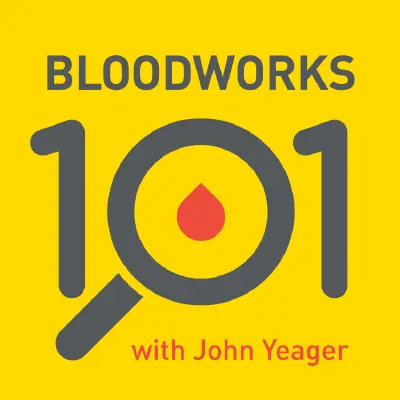
Got a story idea for Bloodworks 101? Send us a text message All summer, Bloodworks Northwest has been reaching out to pet owners through our Give Blood Rescue a Human campaign. Today, you're going to meet a young woman named Leah Penney from the Neko Cat Cafe on Seattle's Capitol Hill. Leah has a very personal reason for why he's a part of the campaign. In fact, as Bloodworks 101 Producer John Yeager found out, if it weren't for blood donors ... Well, we'll let Leah tell you that part of the story.
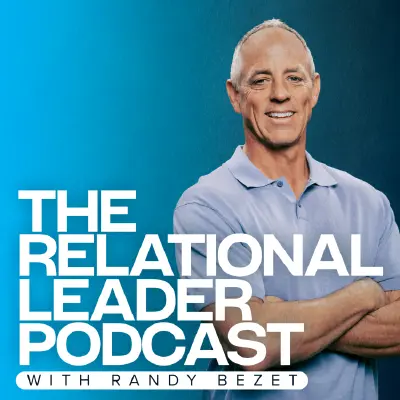
In this episode we sit down with two guests from Generation Alpha. We take a deep dive into what church means to them and ask questions about how we can be better Pastors and leaders to them. We hope you enjoy the conversation!

Welcome to another episode of That Cancer Conversation! For our series finale, Sophie is joined by royal correspondent and best-selling author, Katie Nicholl. Katie has spent over 20 years writing about the British royal family, from A-levels to coronations, Katie has reported it all. But when King Charles III and Princess Catherine both announced their cancer diagnoses, their stories hit very close to home, as only a few months earlier Katie finished her own treatment for liver cancer.On this episode, Katie talks to Sophie about her own personal cancer story, being diagnosed with a rare form of liver cancer (cholangiocarcinoma), and reflects on the impact the King and Princess of Wales have made from their own cancer experiences. You can watch the full episode on our YouTube channel! We’ll be back soon with series 4! Thank you for tuning in and subscribe to be the first to listen to new episodes. Links: Read more about cholangiocarcinoma AMMF The Cholangiocarcinoma Charity Follow Katie on Instagram Discover more of Katie’s work: Vanity Fair DYNASTY podcast: The Royal Family’s Most Challenging Year For more cancer stories, visit Cancer News. Hosted on Acast. See acast.com/privacy for more information.
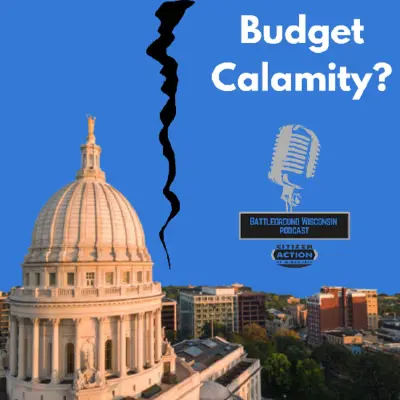
We record the morning after the state budget deal was signed by Governor Evers in the wee hours of the night. We do a full budget postmortem with State Representative Francesca Hong and Heather DuBois Bourenane, Executive Director of Wisconsin Public Education Network (WPEN). How bad was the state budget for education, health care, child care, and other top priorities? Did Democrats leave power on the table that could have been used to win a better budget? What is the path forward for grassroots progressives to reverse Wisconsin's disinvestment in vital public services?




